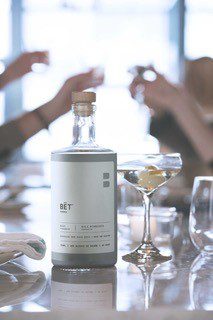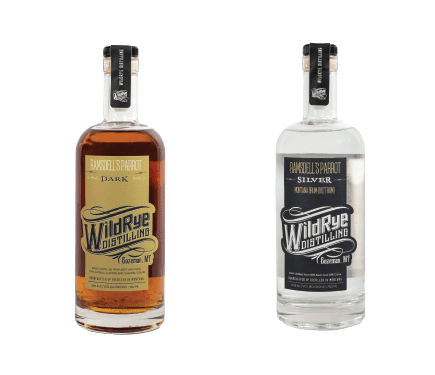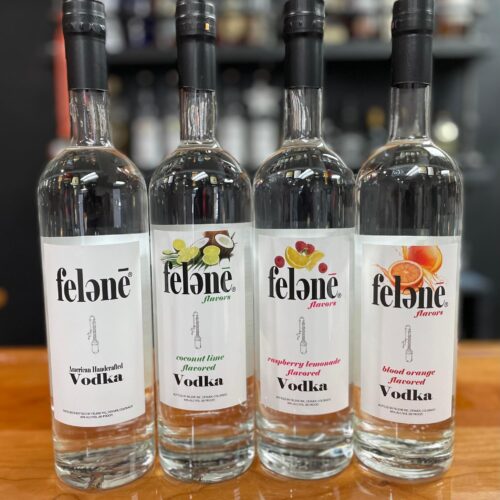Vodka and rum have long been enjoyed for their versatility. Vodka’s origins can be traced to 800 AD and the first record of rum was in the 17th century. Europe has a long history of making vodka from beet sugar, and rum has been made with both sugar cane juice and molasses since the mid-1600s.
However, vodka made from sugar cane juice, and spirits, gin and rum made from beet sugar are relatively new in the United States. A handful of distilleries throughout the United States are making these products, and say these innovative new beverages are here to stay.

“Sugarbeet vodka is a best kept secret,” said Weldon Spangler of Minneapolis, Minnesota. Weldon, along with his wife Amy and son Wayne, own and operate BET vodka and use beet sugar produced in the Red River Valley region of Minnesota and North Dakota.
“BET Vodka was created in 2016 and was the first Midwest vodka brand made entirely from sugarbeets,” said Amy. “The founders were selling the company, and we purchased it in November of 2022.”
The Weldon family distills their vodka a few times a year in large batches. They own the recipe and product, and their distilling is done by Paul Werni at 45th Parallel Distillery in New Richmond, Wisconsin. Werni purchases the sugar from a sugarbeet cooperative in the Red River Valley and has it delivered to the distillery.
“Because alcohol is made by fermenting sugar, sugarcane and sugar beet crops are the easiest ingredients to convert into alcohol,” he said.
Making sugar beet vodka takes close to a month, according to Werni.
“There are two weeks of fermentation and then three days of distillation, filtration, and blending. Making vodka with beet sugar is like making a really pure rum. There are not a lot of nutrients in the fermentations, which are long and slow, and distilling corrects the purity level,” he said. “Making whiskey is about retaining impurities, but making vodka is about removing them. BET vodka is tripled distilled, which means impurities are removed in stages. It takes a couple of distillations to get to the desired purity level and get a good yield.”
In Denver, Colorado, Tim Kelly and his business partner Kim Veiga make vodka out of organic sugarcane juice. Their company is called Felene Vodka (pronounced “felony”) and they describe their product as being “criminally smooth.”
“Vodka is the most widely consumed spirit worldwide, as well as in the U.S., so it has been very popular for decades. That said, it has had a reputation for being all punishment and no reward from a taste profile. Until 2021, vodka was legally classified as ‘tasteless, odorless and without character,’ by the US government,” Kelly said. “Sugarcane-based vodka is much smoother than people anticipate. We convert almost 70 percent of the people who sample our product into buyers.”
Kelly sources organic sugarcane juice and has it shipped to the distillery.
“Sugarcane is arguably a superior source of agricultural base for vodka-making because it has a high enough concentration of readily accessible sugars for fermentation. It is much easier than other crops to ferment and distill and does not require the same type of processing as starch-based products,” he said. “The result is a cleaner fermentation, a simpler distillation process and a much smoother finished product.”
Sugarcane has historically been associated with rum, but Alan Edmundson of WildRye Distilling in Bozeman, Montana, is putting a new spin on an old favorite. His Ramsdell’s Parrot Silver “Rum” is an un-aged sugar spirit made from beet sugar, meaning that it has never been in any sort of barrel and has the same flavors as when it came off the still.
 “WildRye Distilling, LLC was started in 2014 with the simple goal of sharing our passion for innovative craft spirits. The Sugar Beet ‘Rum’ was one of our first products,” said Edmundson. “We decided to use something Montana has a lot of—sugar beets—to produce ‘rum’. The US government has designated categories for how alcohol can be labelled, based on initial fermentation. Under these rules, rum must be made from cane sugar to have the rum label. Our product is technically a “Beet Sugar Distilled Spirit Specialty,” so we cannot call it ‘rum.’”
“WildRye Distilling, LLC was started in 2014 with the simple goal of sharing our passion for innovative craft spirits. The Sugar Beet ‘Rum’ was one of our first products,” said Edmundson. “We decided to use something Montana has a lot of—sugar beets—to produce ‘rum’. The US government has designated categories for how alcohol can be labelled, based on initial fermentation. Under these rules, rum must be made from cane sugar to have the rum label. Our product is technically a “Beet Sugar Distilled Spirit Specialty,” so we cannot call it ‘rum.’”
Since WildRye Distilling’s ‘rum’ beverage cannot be sold as rum according to government labelling requirements, there are no similar products on the market.
“Our spirits make you think about people, place, history, and passion. We are inspired by our local Montana agricultural heritage,” said Edmundson. “Distillers and brewers have always, and continue to provide, a direct value-add to local agriculture. We take agricultural products that would traditionally need to be shipped out of state and use them locally to produce value-added manufactured products.”
Sugar beet spirits are unique way to connect with the history of Colorado, according to Max Vogelman of Stoneyard Distillery in Dotsero.
“Most people who live here don’t know the impact agriculture has on the state. The sugarbeet spirits get people’s attention,” he said.
Vogelman and his business partner Jim Benson started Stoneyard Distillery in 2014, with the goal of creating a unique product with local ingredients.
“There is not really a label for what we make. It’s not a rum or a vodka, so it’s just called ‘specialty spirits,’ said Vogelman. “The legal definition of vodka is ‘neutral spirit,’ and all the flavor has been stripped away. Vodka is typically distilled up to 95 percent alcohol. Our spirits are distilled to 92 percent, in order to keep the flavor.”
Educating people about sugar beets and sugarcane is as much a part of the distilling process as producing alcoholic beverages, and the distillers believe the high quality of the products speak for themselves.
“The challenge is to get people to try it, but when they do, they are surprised by how good it is,” Vogelman said.





Get Social with #MoreToSugar